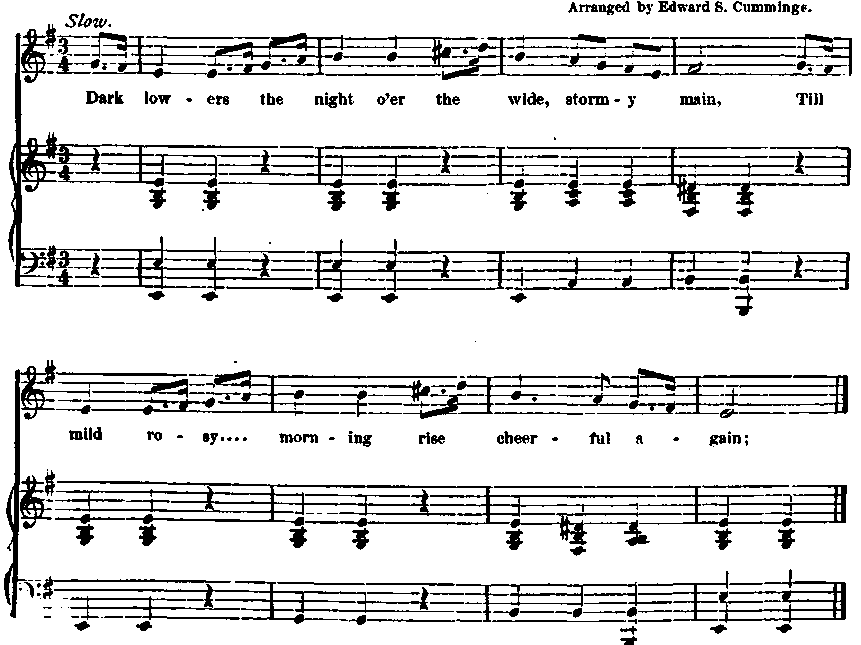Familiar Songs - Their Authors & Histories
300 traditional songs, inc sheet music with full piano accompaniment & lyrics.
| Share page | Visit Us On FB |
|
312 |
OUR FAMILIAR SONGS. |
||
|
ers, that Wilson was imprisoned, and compelled to burn the poem publicly, in front of the jail. From that time, his path was so hunted that he fled the land. Like Burns, he was obliged to work hard for the money to carry him away from those who would some time be proudest to own him; but, unlike Burns, when four months of toil were over, no encouraging hand restrained him by a hearty touch upon the shoulder. He set sail for America, in 1794, and landed at Newcastle, Delaware, July 14. With a gun on his shoulder, and a few shillings in his pocket, he set out to walk to Philadelphia. During the long journey, he shot a red-headed wood-pecker, and had time to examine it attentively. This was his first lesson in ornithology. He became a copper-plate printer in Philadelphia, then a weaver, then a pedler in New Jersey, where he kept his journal, as of old. He then turned schoolmaster, and was himself a student in the sciences. He formed the acquaintance of William Bartram, the naturalist, and Alexander Lawson, the engraver, and the result was a project to describe, with drawings, all the birds of the Middle States — finally, all in the Union. The plan was so large that everybody was frightened from it, except the indefatigable author. He tramped, and wrote, and drew, and colored, until the first volume was ready for publication. In the mean time, he had fallen upon a noble and liberal publisher, Samuel Bradford, of Philadelphia. The book contained the finest illustrations yet published in this country, and was eminently successful. Wilson continued his voyages alone, and iu the midst of privations. One trip he took in a little skiff, going the length of the Ohio Biver, through many perils, and writing poetry as he went. So he persevered, until seven volumes had been published. In preparing the eighth, he endangered his life by swimming in pursuit of a rare bird, and the result of the exposure was his death, August 23, 1813. His last wish was, that he be buried near some sunny spot, where the birds would come and sing.
The title to the air of his song is, "Good Morrow, fair Mistress." |
|||
 |
|||